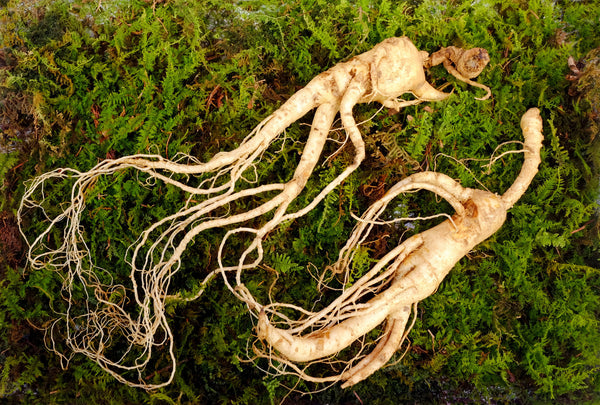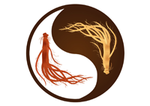Table of contents
The positive effects of herbs on health are now well established and widely known. Even in the ingredients of artificial medicines, herbal ingredients are often found, but more and more people are trying to avoid them and opt for the natural form to avoid side effects and unnecessary strain on the body.

It is now common knowledge that the side effects and allergic reactions caused by medicines are often due to the additives, not to the active ingredient itself. This can be avoided by consuming medicinal herbs, where the active ingredient is taken directly into the body, without any additives. Herbs are therefore in many cases safer than the medicines themselves. But to be effective, you need to know which ones to take.
Herbs, but which ones?
When people think of Asian herbs, ginseng and ginkgo biloba come to mind, and many people even confuse them. Both plants are very useful and both are used medicinally, but they do not have the same effect or the same potency. We will show you what ginkgo biloba and ginseng can do, so that there are no questions or confusions in the future.
Effects of Ginko biloba
Ginkgo biloba, also known as fern, is an Asian plant similar to ginseng, but it has been introduced to Europe and is therefore easier to obtain. While ginseng is the stronghold of South Korea, ginkgo biloba is associated with China, where it has great religious significance and can be found near all sacred sites.

Ginkgo biloba has deep green, long-stalked leaves and a waxy, fleshy fruit, which the Chinese eat both fried and boiled. The leaves resemble a fan with a handle. Because of its beauty, it is also kept as an ornamental plant in Europe.
In general, ginkgo biloba trees can grow to 25-30 metres tall. While young, it is slender, later the crown widens to a cone shape. The bark is brownish-grey, furrowed, and the trunk is knobbly. But its distinctive appearance is not the only reason to grow ferns. As we have already mentioned, this plant can help with many diseases and health problems, especially those related to the vascular system. It is able to slow down calcifying lesions of the vascular system, promote the opening of new vascular passages, dilate blood vessels and stimulate circulation.
Ginkgo biloba has a positive effect on memory thanks to its ability to improve blood and oxygen supply to the brain. Because of this excellent property, it can be used continuously in old age to preserve memory and prevent memory problems, as well as having a calming effect and relieving sleep disorders. It is also excellent for relieving allergic and asthmatic complaints.
The effects of ginseng
Ginseng has been a proven remedy for preventing disease and maintaining youthfulness in Asia for thousands of years. It was once called the 'root of life' or the 'plant of life'. Ginseng, or panax, is a genus of the umbelliferae order and the araliaceae family. It is a slow-growing perennial plant. Although there are many species, Korea is considered the ancestral home of ginseng.

Ginseng harmonizes vegetative functions, activates the cerebral cortex and stabilizes the hormonal balance. Long-lasting effects can be achieved through a longer course of treatment, but the benefits can be felt within days. Ginseng is highly recommended in cases of fatigue, lack of concentration, memory problems, stress, insomnia, recovery from prolonged illness or surgery, faster recovery, but above all to delay the ageing process and maintain youthfulness of body and mind.
Ginseng can be a solution for chronic diseases such as blood pressure problems, high cholesterol, diabetes and various inflammations. It stimulates blood circulation, affects the vascular walls, helps break down fats and can effectively regulate blood sugar levels. It can also increase brain activity to a level that can have a significant effect on Alzheimer's patients.
Ginseng is also widely known for its potentiating effects, which are also due to its ability to improve blood flow. Many people know the herb for this and automatically think of it as a potency problem solver. This is true, of course, but it is a mistake to put this fantastic plant in this category, as it has many other effects - as described above.
So which is better? Ginseng or ginkgo biloba?
It is not easy to proclaim a result, as both herbs are very useful and indeed have many positive effects on the functioning of the body and on maintaining health. It is also clear that there is some overlap in their effects - perhaps this is why they are often confused.

However, it can be seen from the list that ginseng has a broader range of effects, and can therefore provide solutions to a number of ailments and everyday problems. There have been many experiments and studies on the effects of ginseng, mostly in the Far East, which have been officially confirmed.
It is important to know, however, that it makes a difference how and in what form we consume the herb. This is true of both, but especially true of ginseng, as it depends on many factors whether it is really effective.
What should you look for when choosing a preparation?
In the case of ginseng, it is very true that there are many different forms on the market, but only a minority of these are truly effective. This is not the fault of the ginseng, but rather the processing and harvesting practices.
Indeed, ginseng is at its most active when the plant is at least 6 years old. That is why the products available from us contain one to one 6-year-old ginseng, so that they contain the highest possible proportion of the active ingredient, making the products themselves more effective.
If you find a ginseng product particularly cheap, you can be sure that the active ingredient is low, which means that you cannot really trust its effectiveness. The leaflets of most products available in Hungary mainly indicate the weight of the product (e.g. capsule, ampoule) in milligrams. It is written on the box how many milligrams of ginseng powder are contained in a capsule. But this does not equate to the active ingredient content of the powder, which is usually a fraction of this. In addition, they are typically made from young ginseng, so their absorption and potency is negligible.
How do you know that the ginseng you are using is 6 years old? Well, if you do, you can be pretty sure it will be labelled on the box. If you can't find any information about this, well, there's usually a reason. Typically, products made in South Korea are made from 6 year old plants and are not cheap to buy. (How could they be if they are working with something that is 6 years old?)
Unfortunately, one often comes across negative reviews, not only about ginseng, but also about other herbs such as ginkgo biloba. This is largely because people try to buy the cheapest possible preparations, and their effectiveness is highly questionable - mostly none or very mild.
It makes a difference which product you choose if you want to improve the quality of your daily life with herbs. If you choose the right products, you will soon feel the effects; you just need to make sure that they contain the right amount of active ingredients.


